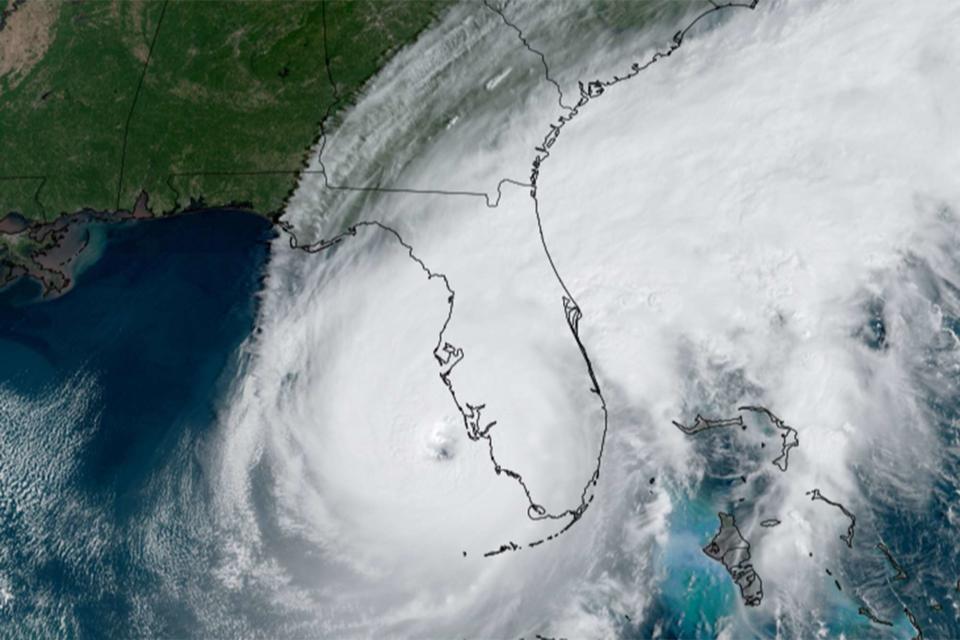What to Expect This Summer As Hurricane Season Approaches, According to the NOAA
The National Oceanic and Atmospheric Administration released its prediction for the 2023 hurricane season on Thursday.

Courtesy of NOAA
A satellite of Hurricane Ian as it made landfall on the barrier island of Cayo Costa in southwest Florida on September 28, 2022.The National Oceanic and Atmospheric Administration (NOAA) has predicted a near-normal hurricane season in the Atlantic Ocean this year with a 30 percent chance it could be worse than that.
The prediction, which NOAA Administrator Rick Spinrad shared in a news conference on Thursday, comes just a week before the start of the Atlantic hurricane season on June 1. Hurricane season lasts through the summer and fall until November 30.
“Remember, it only takes one storm to devastate a community,” Spinrad told T+L during the news conference. “Regardless of the statistics… if one of those named storms is hitting your home, your community, it's very serious.”
Overall, NOAA predicted a 40 percent chance of a near-normal season, a 30 percent chance of an above-normal season, and a 30 percent chance of a below-normal season this year. The administration also forecast anywhere from 12 to 17 total named storms this year (with winds of 39 mph or higher) of which five to nine may become hurricanes (with winds of 74 mph or higher). Of those, NOAA predicts anywhere from one to four major hurricanes.
The outlook differs from last year’s prediction when NOAA forecast an above-average hurricane season (resulting in 14 named storms) and from the very busy 2021 season when the Atlantic saw 21 named storms, according to NOAA.
This year’s forecast of a less active hurricane season comes as NOAA scientists predict a very high potential for El Nino, which tends to suppress hurricanes. That said, the effect of El Nino could be “offset by favorable conditions local to the tropical Atlantic Basin,” according to NOAA.
To help improve forecasts this year, NOAA will introduce a new Hurricane Analysis and Forecast System (HAFS) next month. The new model has a 10 to 15 percent improvement in track forecasts. The administration also introduced a Probabilistic Storm Surge model upgrade earlier this month to improve surge forecasts.
FEMA Administrator Deanne Criswell said advancements in forecasting make “an incredible difference to the emergency management community and how we can make sure that we're getting the right information to people in a timely manner so they can take the appropriate actions to protect themselves and their families.”
The Atlantic hurricane season predictions come on the heels of a super typhoon that CNN reported slammed the U.S. territory of Guam Wednesday night with hurricane-force winds and incredible rainfall.
For more Travel & Leisure news, make sure to sign up for our newsletter!
Read the original article on Travel & Leisure.

